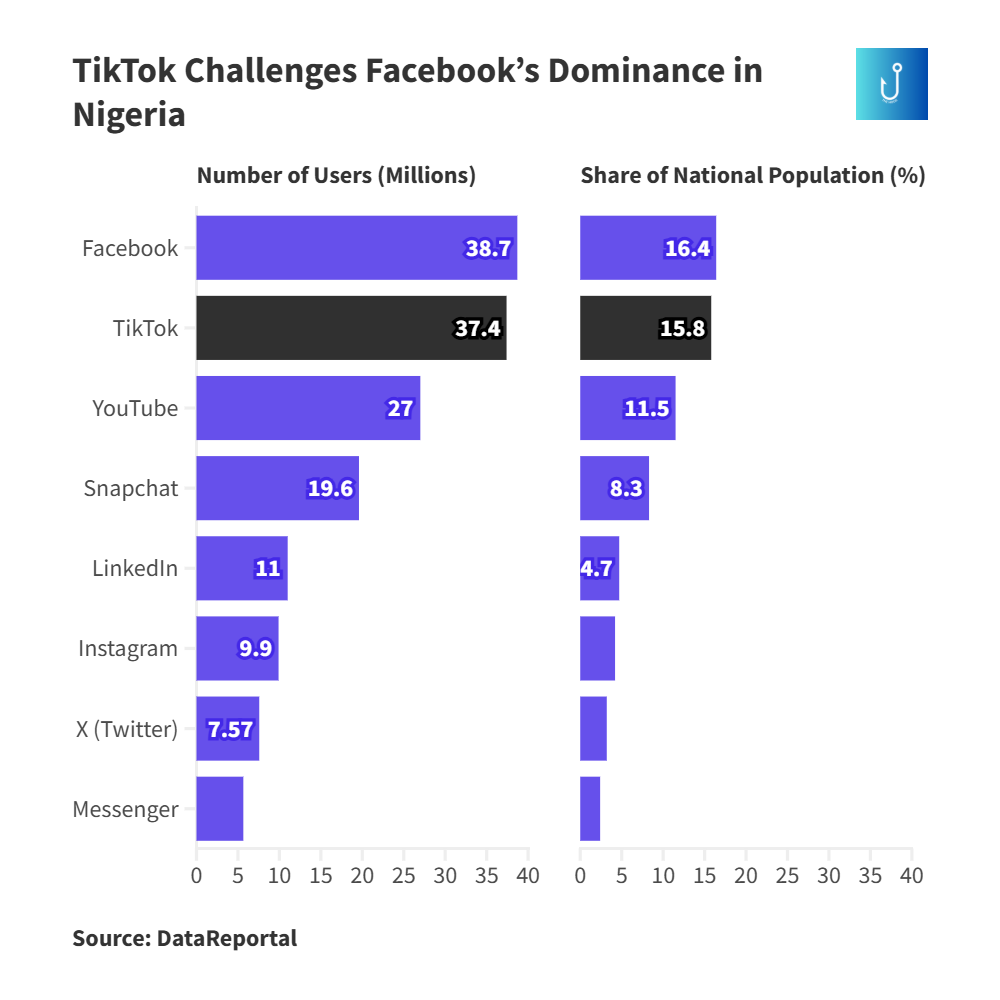The Algorithm and the Anthem: How TikTok Is Rewriting African Pop Culture
The structural collapse of traditional gatekeepers and the nature of virality in African pop culture.
Thank you for reading The Hook! This free weekly newsletter examines the data behind specific fields of human endeavor, including sports, pop culture, the economy, digital economy, and entertainment. It lands in the inbox of over 70 subscribers every week! You can support this newsletter by sharing this free post.
You can read previous editions here.
The Future of Music, or perhaps just the present velocity of culture, is a phenomenon often framed in anecdotal terms—a trending panel discussion here, a sudden chart spike there, or random Twitter conversations on a weekend.
But the real story is structural: TikTok has spent the last three years evolving from a niche social utility into Africa’s most influential cultural engine. This was the key takeaway from an interesting panel conversation titled: The Future of Music: How Data is Powering Discovery, Distribution & Revenue I listened to last week at Moonshot by TechCabal at the Creative Economy Stage.
TikTok manufactures taste, determining which Afrobeats tracks are amplified, which vernacular slang achieves cross-border appeal, and which emerging artists are deemed worthy of a major record deal. The data is stark: Nigeria fields over 34 million active users, the vast majority of them under 30. For a track, this viral capacity is not incremental; a successful trend can catalyze streaming spikes of 300 to 500 percent in a single news cycle.
This is the new architecture of influence: the expressive power of the amateur coupled with the invisible hand of the recommendation algorithm. Culture no longer originates in smoky studios or through label committee meetings; it is beta-tested by twenty-year-olds with good lighting and a perfected sense of timing. What does this radical algorithmic bypass mean for the gatekeepers of old, and for the very economics of creativity and control?
The Psychology of Virality and Identity
The platform operates on the engine of what behavioral scientists call the dopamine economy—a precise feedback loop where short bursts of validation (likes, shares) instantaneously reinforce the associated behavior (the dance, the lip-sync). This micro-level reward structure engineers a sense of digital agency for the creator, a fleeting but palpable feeling of control often elusive in the offline world.
For the audience, joining a coordinated dance or attempting a lip-sync is a mechanism for manufacturing shared identity. It’s the digital analogue of Erving Goffman’s theatrical metaphor: life as a series of staged performances. On TikTok, the stage is fractured and multiplying; every scroll is a scene change, positioning the creator simultaneously as actor and audience, constantly stress-testing the perimeter of their own online persona.
The Algorithm Rewrites the Rules
The history of cultural travel is a history of channel control. From radio to television to the monolithic record label, influence always resided with those who controlled the conduit. Today, that conduit is the algorithmic engine, which quietly arbitrates visibility, memory, and the path from obscurity to ubiquity.
This mechanism fundamentally alters the topography of influence. Authority is no longer centralized among a few industry executives but distributed among millions of micro-creators who collectively feed the system with cultural fragments. This new, fluid structure acts as a cultural flattening agent across the continent. Yoruba slang quickly achieves velocity in Nairobi; South African dance styles find purchase in Accra; Kenyan comedy trends reach London. Regional boundaries dissolve into global flows in an afternoon. Cultural ownership, in this context, becomes less about origination and more about collective maintenance.
The Political Economy of Virality
Every viral moment is undergirded by a quiet, often exploitative, political economy. The currency of views and shares may appear free, but they generate immense, quantifiable value—not for the individual creator, but for the platforms that aggregate, sort, and commercialize their attention. The clip that transmits a track from Surulere to São Paulo might elevate an artist’s profile, but its primary function is fueling a business model built on the relentless extraction of behavioral data.
The structural reality is that most African creators operate outside the established monetization funnels that sustain their counterparts in Western markets. Exposure is exchanged for income—a trade that renders their digital engagement as unpaid infrastructure. The exchange may appear to be voluntary on the surface, but the underlying imbalance is entirely structural.
Yet, the posting persists. The resultant paradox of modern culture is creativity that functions simultaneously as self-expression and as unpaid global infrastructure. It is in this friction between the imperative for freedom and the reality of exploitation that African pop culture is continually reinventing the mechanics of its own survival and circulation.
The Anthem Rewritten
Each generation builds its own instruments of voice. For the young African, the algorithm has become an amplifier and an archive, oscillating between connection and curiosity, a domain where creativity must find new routes through systemic constraints.
A decade ago, achieving cultural visibility required a physical presence. Today, that visibility starts locally and radiates outward, carried by code. A creator in Benin posts a simple dance at dusk; by dawn, her kinetic rhythm is being reinterpreted across continents by strangers who share nothing but a tempo.
Has TikTok influenced your choice of music/pop culture consumption? Please share in the replies
If you have any feedback or suggestions on how to improve the newsletter, please share them with me.
Interesting article(s) I found this week:
The road to 500 subscribers is on. If you loved reading this edition of the newsletter, and know someone who would enjoy it. Please share it with them, and don’t forget to hit the subscribe button.
See you on Monday


